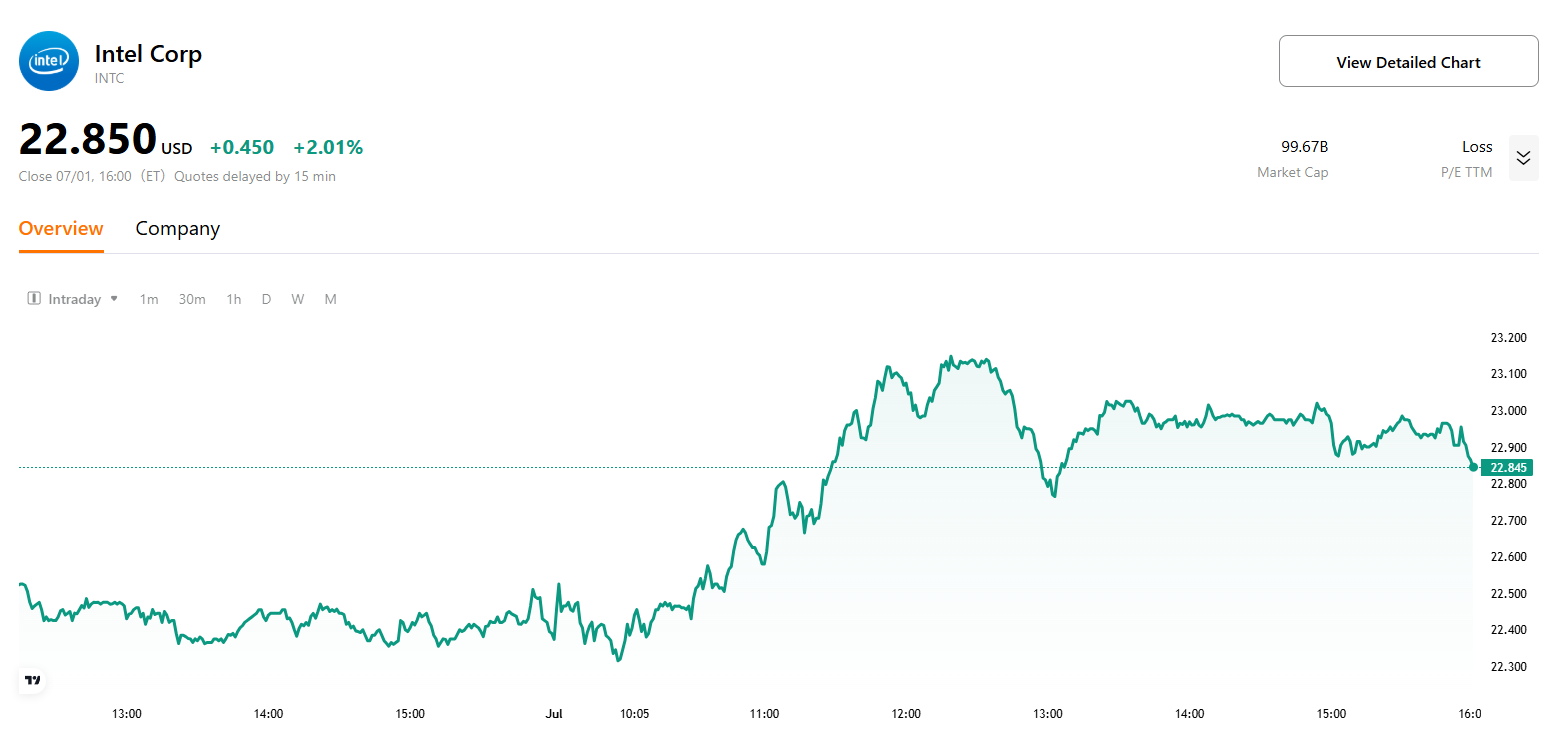Intel Pushes Past 18A in Race to 14A—Is the Market Buying It?

TradingKey - Industry sources indicate that Intel (INTC) is planning a major strategic adjustment to its foundry business, intending to skip the previously scheduled Intel 18A (1.8nm) process and directly advance to the more advanced 14A (1.4nm) process to enhance its market competitiveness.
Originally, Intel's 18A process was positioned to compete with TSMC and Samsung's 2nm technology, serving as a critical milestone for the company to reclaim process leadership. However, the process currently lacks a strong appeal to major clients such as Apple and NVIDIA. In contrast, Intel's 14A process—the world's most advanced node—offers a 15%-20% improvement in energy efficiency and chip density compared to 18A, delivering superior performance and power efficiency, and positioning it to capture customers from TSMC.
However, if Intel abandons its 18A rollout, it may face asset write-downs ranging from hundreds of millions to billions of dollars, as 18A-related investments have already entered the risk production phase, with mass production originally planned by the end of 2025.
Currently, there are internal disagreements within Intel regarding this decision; the board is scheduled to discuss the future of the 18A process this month, with a final decision possibly being postponed until an autumn meeting. Intel has stated that while the primary focus of the 18A process is on internal chip production, external clients remain crucial for its foundry business.
TSMC's 2nm (N2) process is set for mass production in the second half of 2025, while its A14 node targets 2028. Intel has a clear goal: to surpass TSMC's technology nodes by 2027 through its 14A process, becoming the first company to adopt High-NA EUV technology. Currently, TradingKey data shows the average target price for Intel from Wall Street analysts is $21.205, while its current share price stands at $22.85.

(Source: TradingKey)







